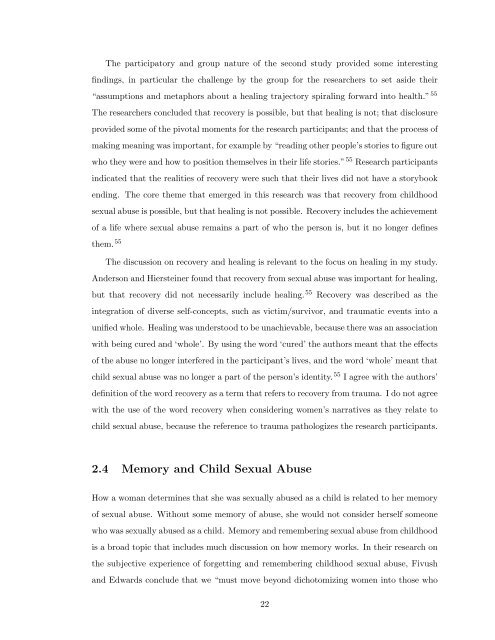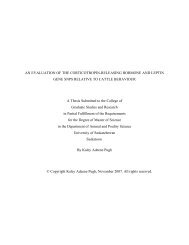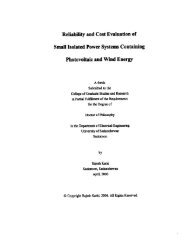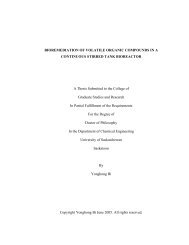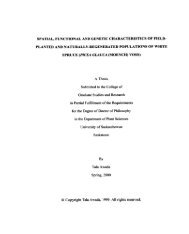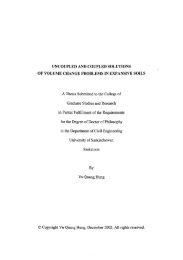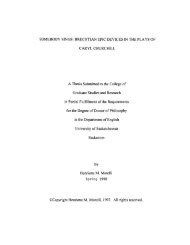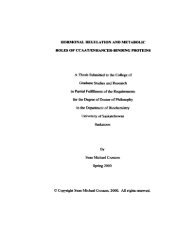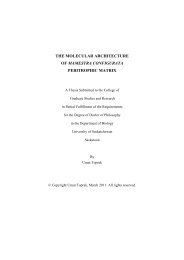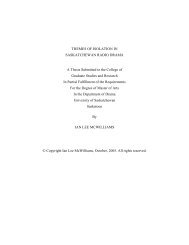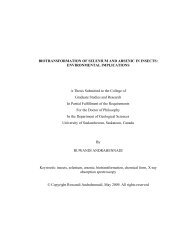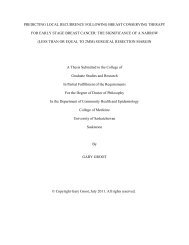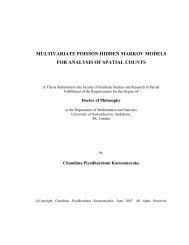Women's Narratives of Healing from the Effects of Child Sexual Abuse
Women's Narratives of Healing from the Effects of Child Sexual Abuse
Women's Narratives of Healing from the Effects of Child Sexual Abuse
You also want an ePaper? Increase the reach of your titles
YUMPU automatically turns print PDFs into web optimized ePapers that Google loves.
The participatory and group nature <strong>of</strong> <strong>the</strong> second study provided some interesting<br />
findings, in particular <strong>the</strong> challenge by <strong>the</strong> group for <strong>the</strong> researchers to set aside <strong>the</strong>ir<br />
“assumptions and metaphors about a healing trajectory spiraling forward into health.” 55<br />
The researchers concluded that recovery is possible, but that healing is not; that disclosure<br />
provided some <strong>of</strong> <strong>the</strong> pivotal moments for <strong>the</strong> research participants; and that <strong>the</strong> process <strong>of</strong><br />
making meaning was important, for example by “reading o<strong>the</strong>r people’s stories to figure out<br />
who <strong>the</strong>y were and how to position <strong>the</strong>mselves in <strong>the</strong>ir life stories.” 55 Research participants<br />
indicated that <strong>the</strong> realities <strong>of</strong> recovery were such that <strong>the</strong>ir lives did not have a storybook<br />
ending. The core <strong>the</strong>me that emerged in this research was that recovery <strong>from</strong> childhood<br />
sexual abuse is possible, but that healing is not possible. Recovery includes <strong>the</strong> achievement<br />
<strong>of</strong> a life where sexual abuse remains a part <strong>of</strong> who <strong>the</strong> person is, but it no longer defines<br />
<strong>the</strong>m. 55<br />
The discussion on recovery and healing is relevant to <strong>the</strong> focus on healing in my study.<br />
Anderson and Hiersteiner found that recovery <strong>from</strong> sexual abuse was important for healing,<br />
but that recovery did not necessarily include healing. 55 Recovery was described as <strong>the</strong><br />
integration <strong>of</strong> diverse self-concepts, such as victim/survivor, and traumatic events into a<br />
unified whole. <strong>Healing</strong> was understood to be unachievable, because <strong>the</strong>re was an association<br />
with being cured and ‘whole’. By using <strong>the</strong> word ‘cured’ <strong>the</strong> authors meant that <strong>the</strong> effects<br />
<strong>of</strong> <strong>the</strong> abuse no longer interfered in <strong>the</strong> participant’s lives, and <strong>the</strong> word ‘whole’ meant that<br />
child sexual abuse was no longer a part <strong>of</strong> <strong>the</strong> person’s identity. 55 I agree with <strong>the</strong> authors’<br />
definition <strong>of</strong> <strong>the</strong> word recovery as a term that refers to recovery <strong>from</strong> trauma. I do not agree<br />
with <strong>the</strong> use <strong>of</strong> <strong>the</strong> word recovery when considering women’s narratives as <strong>the</strong>y relate to<br />
child sexual abuse, because <strong>the</strong> reference to trauma pathologizes <strong>the</strong> research participants.<br />
2.4 Memory and <strong>Child</strong> <strong>Sexual</strong> <strong>Abuse</strong><br />
How a woman determines that she was sexually abused as a child is related to her memory<br />
<strong>of</strong> sexual abuse. Without some memory <strong>of</strong> abuse, she would not consider herself someone<br />
who was sexually abused as a child. Memory and remembering sexual abuse <strong>from</strong> childhood<br />
is a broad topic that includes much discussion on how memory works. In <strong>the</strong>ir research on<br />
<strong>the</strong> subjective experience <strong>of</strong> forgetting and remembering childhood sexual abuse, Fivush<br />
and Edwards conclude that we “must move beyond dichotomizing women into those who<br />
22


